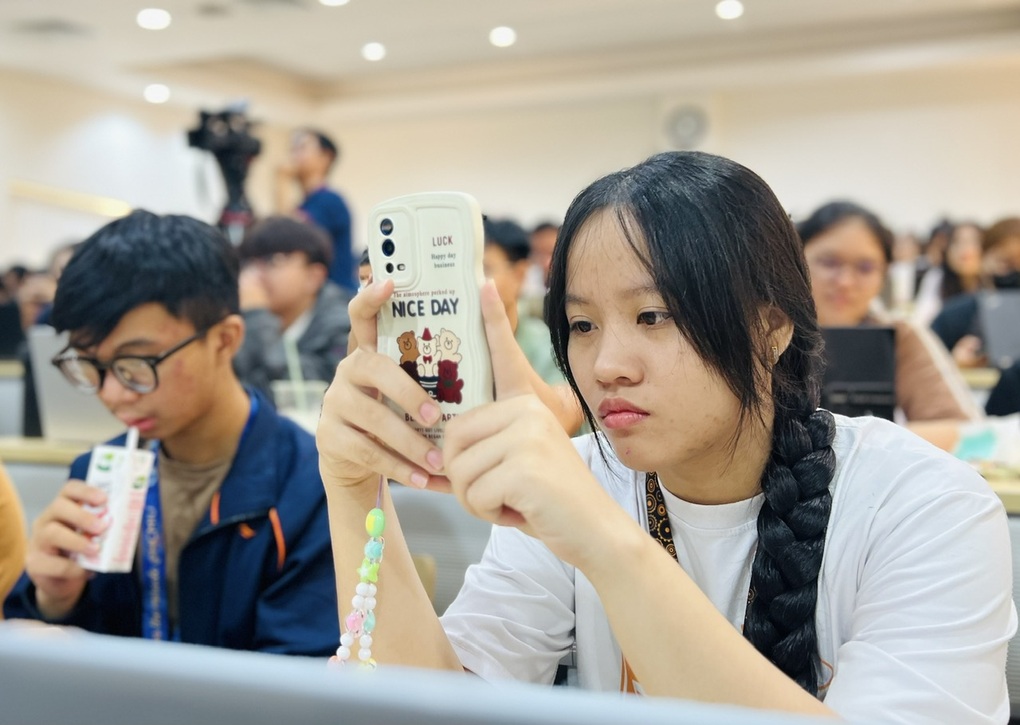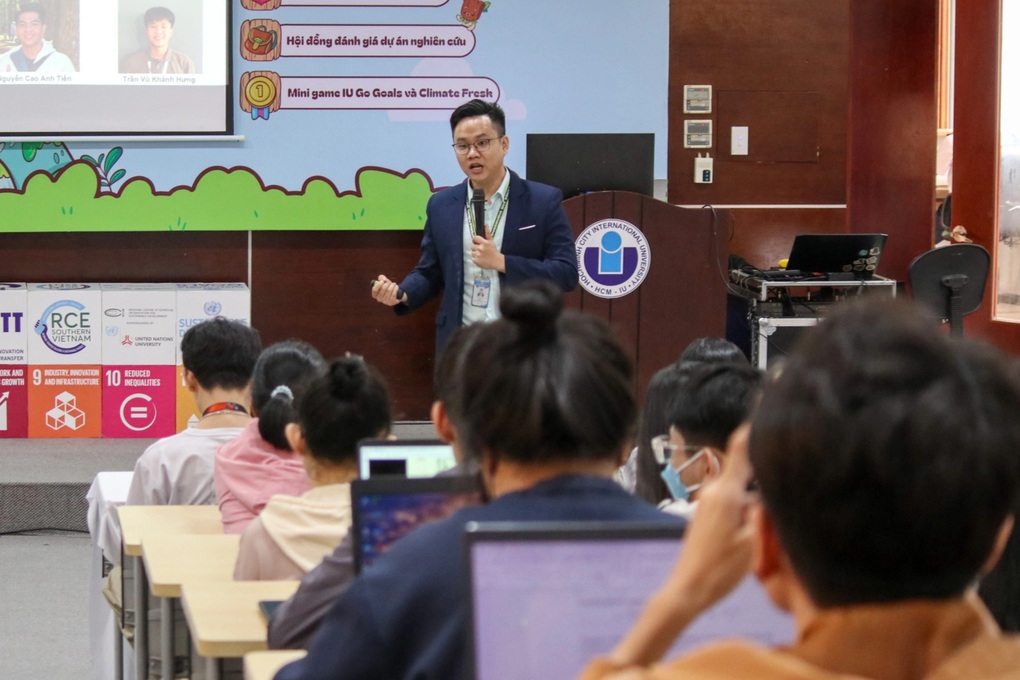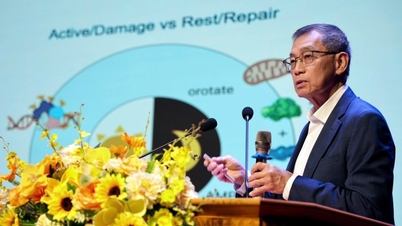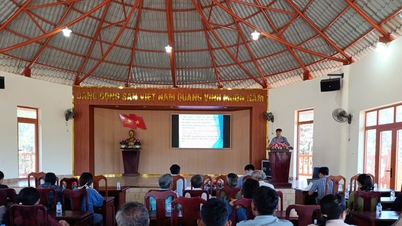(Dan Tri) - I use ChatGPT to study, the problem is handled very effectively, I learn very quickly but I'm worried that I will learn and then forget, not leaving much in my mind...
That was the question raised by a male student at the workshop on Applying AI (artificial intelligence) in learning within the framework of the 2024 Innovation Week of the International University (Ho Chi Minh City National University) lasting from November 11-14.
This male student said that he often uses AI, especially ChatGPT, to study and do homework.

Students conducted a survey on the use of ChatGPT in learning at the workshop (Photo: HN).
Lessons and problems that arise in learning are handled very effectively by technology, making learning quick and convenient. But then, this student realized that the knowledge that comes in quickly also seems to leave very quickly, leaving nothing much in the mind.
From his own experience, the male student is concerned about whether the abuse of technology in learning can make students learn quickly, forget quickly, be superficial, and not use their brains, think, or be creative...
At the workshop, Dr. Le Duy Tan, lecturer at International University, Ho Chi Minh City National University, co-founder of Lap AioT Vietnam, conducted a quick survey with participating students about the use of ChatGPT.
The results show that 72% have used ChatGPT but are not proficient, the number of students proficient in ChatGPT is 20.6%, the rest are those who have not used it, used it from friends, or only used it when they were out of ideas...
A recent study by a group of lecturers and students of the National Economics University also showed that more than 97% of students know about ChatGPT.
Of these, 78.92% of students use ChatGPT in their studies and 21.08% of students do not use ChatGPT in their studies. Among the 21.08% of students who do not use ChatGPT in their studies, about 13.41% of students use other Chatbots in their studies.
Dr. Le Duy Tan said that the appearance of ChatGPT has caused many concerns for the education system such as loss of creative thinking ability, empathy ability, distorted knowledge, loss of information security, impact on reading culture, degeneration of human intelligence...
Mr. Tan also mentioned the risk of human intellectual degeneration when over-dependent and overusing ChatGPT. Once people continuously rely on ChatGPT to solve problems, they may lose the ability to solve problems themselves and develop problem-solving skills.
However, it cannot be denied that using ChatGPT brings many benefits in education such as personalizing learning, simple and convenient use, saving time, supporting assessment...
Dr. Le Duy Tan recommends that students should only use ChatGPT as a learning support tool.

Dr. Le Duy Tan discusses the benefits and limitations of using ChatGPT in learning (Photo: Nguyen Ngoc).
When using it, you need to set up a mindset for yourself. Although it is constantly improved, the nature of AI is difficult to be 100% accurate and this requires users to have enough knowledge, thinking, and ability to recognize whether the results provided by ChatGPT are right or wrong.
"We have to be better than AI to be able to use and exploit them effectively," Dr. Le Duy Tan stated his opinion.
In particular, Mr. Tan noted that users absolutely must not provide personal information to ChatGPT and must not mechanically use ChatGPT data to conduct theses or research because it will violate academic integrity.
Associate Professor Dr. Dinh Duc Anh Vu, Vice Rector of the International University (Ho Chi Minh City National University) shared that society is increasingly posing many new challenges, requiring young people not only to have solid professional knowledge but also the ability to adapt and develop necessary soft skills.
This requires learners to build confidence, expand practical knowledge, thereby enhancing their sense of responsibility, willingness to dedicate and contribute to the development of society and community.
Source: https://dantri.com.vn/giao-duc/dung-chatgpt-lam-bai-sinh-vien-hoang-khi-kien-thuc-vao-nhanh-di-voi-20241113100850798.htm


![[Photo] National Assembly Chairman Tran Thanh Man attends the VinFuture 2025 Award Ceremony](/_next/image?url=https%3A%2F%2Fvphoto.vietnam.vn%2Fthumb%2F1200x675%2Fvietnam%2Fresource%2FIMAGE%2F2025%2F12%2F05%2F1764951162416_2628509768338816493-6995-jpg.webp&w=3840&q=75)

![[Photo] 60th Anniversary of the Founding of the Vietnam Association of Photographic Artists](/_next/image?url=https%3A%2F%2Fvphoto.vietnam.vn%2Fthumb%2F1200x675%2Fvietnam%2Fresource%2FIMAGE%2F2025%2F12%2F05%2F1764935864512_a1-bnd-0841-9740-jpg.webp&w=3840&q=75)






































































































Comment (0)